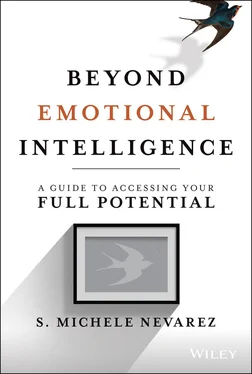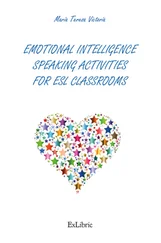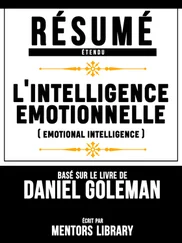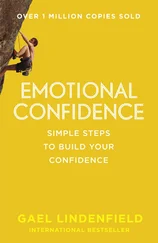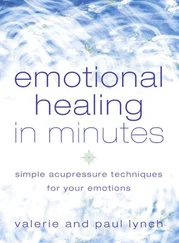However, bound to the parameters of my aims at the time, I found myself gravitating back to the work I had done as an adjunct faculty member of Cultivating Well-Being , a program developed as a joint initiative between Dr. Richard Davidson's foundation, Center for Healthy Minds, and the University of Wisconsin School of Business's Center for Professional & Executive Development. The program was aimed at a corporate audience and was based on the insights, methodologies, and neuroscience research Dr. Richard Davidson has written about along with Sharon Begley in their 2012 New York Times bestseller, The Emotional Life of Your Brain (Davidson & Begley, 2 During this same period of time, I was also in the process of obtaining my master's degree in Positive Organizational Development and Change from the Weatherhead School of Management at Case Western Reserve University. I was taking courses with Dr. Richard Boyatzis, who, along with Daniel Goleman, developed one of the first behavioral models of emotional intelligence, which is still in broad use across the globe today. I had made mental note at the time of a synergy I spotted between what Richie Davidson refers to in his research as the six emotional styles (outlook, resilience, social intuition, self-awareness, sensitivity to context, and awareness) and several of the domains and competencies of EI. I gravitated toward Richie Davidson's work, however, because his research not only establishes a brain basis for the six emotional styles but identifies specific contemplative and cognitive-based practices that when applied consistently can move the needle on our brain basis to develop them. 3 I remember feeling both excited and hopeful that his research had established a scientific basis upon which EI could be practiced and developed, something I felt had been notably missing from all of the then-existing EI models. Granted, I don't believe this was in any way his motivation or intent—rather, he was most fascinated by the topic of resilience and how it is that some people are better equipped at dealing with life's slings and arrows, as he eloquently puts it.
The fact that the concept of EI is thriving 25 years after its debut in Daniel Goleman's writings on the topic is clearly because there is something about EI that resonates deeply with people's experience. When I accompanied him to Europe to hear him speak about EI, many people told me reading his book changed their lives and, in some cases, literally saved their lives. While not everyone would attribute EI or Goleman's work as the reason they decided to stick around on the planet, most of us if given the choice would prefer to spend time with someone who demonstrates EI than with someone who doesn't. Though when pressed to say why that is or to articulate exactly what it is about someone who exhibits or embodies EI that causes them to respond this way, I'd venture a guess that while we might hear similar themes, we wouldn't hear a common response as to why they feel this is so. Emotional intelligence still mostly eludes simple explanation, as would seem to be the case based on the countless articles and books written about it—although that may be equally indicative of EI fast becoming a lucrative industry in its own right.
Despite people having a lot to say about emotional intelligence, we still don't have a common or agreed-upon definition pointing to its definitive meaning or scientific basis. Thus, it isn't surprising we've collectively struggled to articulate what exactly it is or how we definitively measure and develop it in ourselves. After all, our ability to understand and apply something relies on our ability to define what we mean by it. Only at that point can we reliably determine how to approach developing it and training others to do the same. Emotional intelligence is no exception. It relies on our ability to extrapolate the many behaviors and skills from the model—consisting of four domains and 12 competencies—and formulate them into specific practices that when applied result in our becoming more emotionally intelligent—again, once we've defined and agree on what that means.
The Prerequisites of Emotional Intelligence
When I began working with Daniel Goleman and the team at the time to formulate the wisdom of EI into practical applications people could learn and apply, I determined we needed to isolate the prerequisites for developing what his model asserts differentiates top leaders from mediocre ones. My first instinct was to do a crosswalk between his work and Richie Davidson's, knowing it would provide a compelling scientific basis for the prerequisite skills of EI. Daniel Goleman and Richie Davidson had just published Altered Traits at the time, which was largely aimed at sorting science from bunk on the topic of mindfulness as well as sharing their personal stories that had inspired them to do work in their respective fields (Goleman & Davidson, 2017).
What began as an intentional strategy on my part to create a methodology to train and coach people wanting to develop EI led to me reorganizing the domains and competencies on the basis of three factors: (1) whether it stood the test of being a prerequisite to develop other EI competencies; (2) whether it had a direct tie to one of Richie's six emotional styles, which his research concludes can be developed vis-à-vis certain contemplative practices and cognitive behavioral techniques; and (3) whether the competency could be isolated to what we each have the ability to influence within ourselves. In other words, its development and enactment aren't dependent on others' actions or behaviors. It is from that orientation our coaching and training programs were born.
I took the liberty of adding “focus” as a meta-skill to the mix of existing competencies—self-awareness, emotional balance, empathy, positive outlook, and adaptability—for two reasons: (1) It wasn't included in the current EI framework, or perhaps its presence was simply implied. (2) It is one of the six emotional styles that Richie Davidson refers to as “attention.” I actually prefer the term “attention”; it's a nimbler concept that accommodates our ability to selectively direct our attention irrespective of whether we narrow our focus or expand it or place it anywhere in between, whereas “focus” implies narrowed attention on a specific object. However, since Daniel Goleman had also written on the topic of focus, and we were, after all, using his model of EI as our guide and inspiration, it seemed to make sense to add it—not to mention the fact our ability to maneuver this aspect of our own awareness is critical.
Additionally, I preferred the term “emotional balance” over “self-management” or “self-regulation” because it allows us to speak to and train in the nuances of what it means to be resilient, which is one of the six emotional styles Richie Davidson writes about in his book. A person who demonstrates a high degree of emotional balance is both adaptable, able to pivot, and resilient, which means they can recover more quickly. Moreover, they are also not as likely to get upset as easily or, when they do, not as dramatically. In other words, they experience their emotions more like a blip on their emotional radar screen but are less likely to go full tilt—off their emotional rocker, so to say—when they've gone off course. Like a mattress that doesn't leave a lingering impression of the body lying on it long after the person has gotten out of bed, someone who is able to bounce back mentally from whatever life has in store for them can be said to be resilient. Though we didn't end up with an exact one-to-one match between the two models, it was my best attempt at a crosswalk between our program's model of EI and one that directly tied to a model emerging from relevant insights from neuroscience.
Читать дальше
